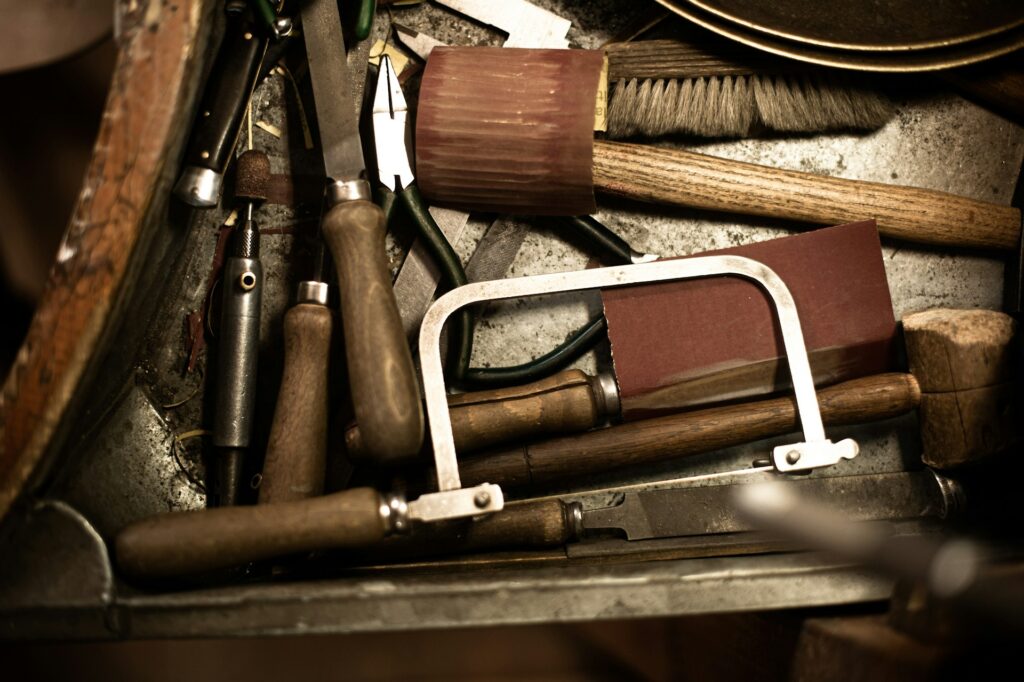
The evolution of firearm technology has given rise to modular firearms, revolutionizing the way enthusiasts, professionals and gunsmiths approach firearm customization and maintenance. As this technology advances, gunsmiths must adapt to an ever-changing landscape that demands both technical proficiency and innovative problem-solving. One institution supporting this adaptation is Sonoran Desert Institute (SDI), which is accredited by the Distance Education Accrediting Commission (DEAC) and offers online programs and courses designed to educate gunsmiths on these advancements.
Modular platforms, such as the AR-15, offer unparalleled flexibility, allowing users to swap components, upgrade parts and tailor their firearms to specific needs. While this adaptability has expanded customization possibilities, it has also introduced new challenges for gunsmiths. To stay ahead of the curve, they must develop expertise in servicing, upgrading and innovating within this highly customizable market. The increasing popularity of modular firearms underscores the necessity for gunsmiths to continuously refine their skills, ensuring they can meet the demands of firearm owners seeking both personalization and performance.
Understanding the Rise of Modular Firearms
Modular firearms have gained widespread popularity due to their versatility and ease of modification. Unlike traditional firearms, which require specialized tools and techniques for adjustments, modular platforms enable users to interchange barrels, handguards, triggers and other components with relative ease. This shift has attracted both seasoned shooters and newcomers looking for a firearm that can evolve with their needs. However, the growing demand for modular firearms also means that gunsmiths must possess advanced knowledge of diverse components and configurations to provide effective services.
The Challenges Gunsmiths Face
With the rise of modular firearms, gunsmiths encounter several challenges in their work. One primary issue is the vast range of manufacturers and aftermarket components, leading to compatibility concerns. While modularity promotes customization, it also increases the complexity of ensuring that different parts function seamlessly together. Gunsmiths must be well-versed in the specifications of various brands, understanding how tolerances, materials and engineering differences impact performance and reliability.
Another challenge is maintaining and troubleshooting modular firearms. Unlike factory-built traditional firearms, which follow standardized assembly processes, modular weapons often consist of individually selected parts. This variability can create unforeseen malfunctions, requiring gunsmiths to develop diagnostic skills tailored to these highly customized firearms. Additionally, ensuring safe and legal modifications is a growing concern as regulations regarding aftermarket parts and modifications continue to evolve.
Innovations in Gunsmithing for Modular Firearms
To meet these challenges, gunsmiths are incorporating new tools and techniques into their craft. One approach is leveraging advanced diagnostics, such as digital bore scopes and high-precision measuring instruments, to ensure proper fit and function between components. CNC machining and 3D printing have also become valuable assets, allowing gunsmiths to create custom components and enhance firearm compatibility.
Education and training have become crucial for gunsmiths working with modular firearms. Many professionals are enrolling in specialized courses focused on modular platforms, such as AR-15 and Glock customization. These programs cover advanced assembly, troubleshooting techniques and regulatory compliance, ensuring that gunsmiths remain proficient in the latest industry developments.
Customization Trends and Market Adaptation
As modular firearms continue to dominate the market, customization trends are shaping the future of gunsmithing. Personalized aesthetics, performance upgrades and tactical enhancements drive consumer demand for tailored firearm solutions. Gunsmiths are responding by offering precision trigger installations, enhanced barrel fitting and custom Cerakote finishes to meet the needs of discerning firearm owners.
Moreover, the increasing interest in modular suppressor-ready designs and integrally suppressed builds has encouraged gunsmiths to expand their expertise in sound suppression systems. By staying informed on evolving technologies and consumer preferences, gunsmiths are positioning themselves as essential figures in the modular firearm landscape.
The Role of Technology in Gunsmithing
With modular firearms becoming increasingly complex, technology is playing a greater role in modern gunsmithing. Computer-Aided Design (CAD) software enables gunsmiths to draft and simulate firearm modifications before execution, ensuring precision and reducing errors. Additionally, laser engraving and custom milling allow for intricate detailing and improved functionality, further enhancing the modular firearm experience.
The use of digital tools also extends to diagnostics and quality control. Firearms can be tested with electronic bore alignment systems and pressure sensors to ensure that each component operates safely and effectively. These advancements streamline the customization process and improve safety standards across the industry.
Regulatory and Compliance Challenges
Gunsmiths working with modular firearms must also navigate an ever-changing regulatory landscape. As laws regarding firearm modifications continue to evolve, staying compliant with state and federal regulations is essential. Gunsmiths must be knowledgeable about restrictions on certain modifications, such as Short-Barreled Rifle (SBR) conversions and ensure that their work adheres to the latest legal requirements.
To address these concerns, many gunsmiths collaborate with legal experts and advocacy groups to stay informed about legislative changes. Training programs now include compliance courses, helping professionals understand their responsibilities and minimize risks associated with firearm customization.
The Future of Gunsmithing in a Modular World
The rise of modular firearms has redefined the role of gunsmiths, requiring them to adapt to a market driven by customization and innovation. As the industry continues to evolve, gunsmiths will need to embrace emerging technologies, refine their expertise and offer specialized services to remain competitive. By balancing tradition with innovation, they can continue to provide valuable support to firearm enthusiasts and professionals alike.
In this ever-changing landscape, those who invest in continuous learning and technical proficiency will thrive, ensuring that modular firearms remain a reliable and customizable option for generations to come. As modular firearm technology continues to advance, gunsmiths must stay ahead by continuously improving their skills, adapting to new market demands and integrating innovative solutions into their craftsmanship. The intersection of craftsmanship, technology and compliance will define the future of gunsmithing. Sonoran Desert Institute remains committed to equipping professionals with the skills and knowledge necessary to thrive in this evolving industry.
As modular firearms continue to revolutionize the firearm industry, gunsmiths must evolve alongside them. The challenges posed by diverse components, customization demands and regulatory requirements require ongoing education and adaptation. By embracing technological advancements, honing their craftsmanship and staying informed on market trends, gunsmiths can secure their place in the evolving world of modular firearm customization.
The ability to combine precision engineering with innovative solutions will ensure that modular firearms remain a dominant force in the industry. Through expertise and dedication, gunsmiths will continue to play a pivotal role in maintaining, upgrading and personalizing firearms to meet the ever-changing needs of firearm enthusiasts and professionals alike.



